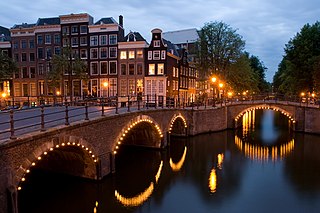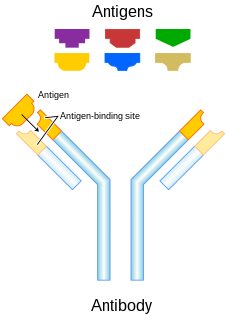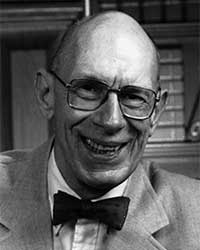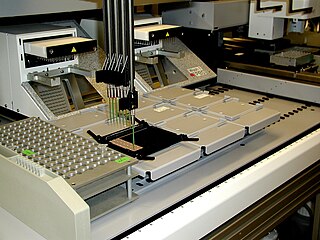
Proteomics is the large-scale study of proteins. Proteins are vital parts of living organisms, with many functions. The term proteomics was coined in 1997, in analogy to genomics, the study of the genome. The word proteome is a portmanteau of protein and genome, and was coined by Marc Wilkins in 1994 while he was a Ph.D. student at Macquarie University. Macquarie University also founded the first dedicated proteomics laboratory in 1995.
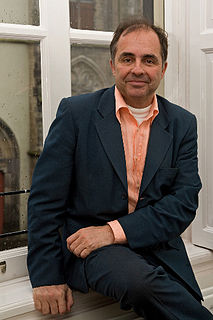
Frits van Oostrom, born in Utrecht, Netherlands, is University Professor for the Humanities at the Utrecht University. In 1999 he was a visiting Professor at Harvard for the Erasmus Chair. From September 2004 to June 2005, he was a fellow of the Netherlands Institute for Advanced Study (NIAS). He was awarded the Spinozapremie in 1995. In May, 2005 he became President of the Royal Netherlands Academy of Arts and Sciences (KNAW) for a three-year period. He had been member of the same institution since 1994.
Mass spectrometry is a scientific technique for measuring the mass-to-charge ratio of ions. It is often coupled to chromatographic techniques such as gas- or liquid chromatography and has found widespread adoption in the fields of analytical chemistry and biochemistry where it can be used to identify and characterize small molecules and proteins (proteomics). The large volume of data produced in a typical mass spectrometry experiment requires that computers be used for data storage and processing. Over the years, different manufacturers of mass spectrometers have developed various proprietary data formats for handling such data which makes it difficult for academic scientists to directly manipulate their data. To address this limitation, several open, XML-based data formats have recently been developed by the Trans-Proteomic Pipeline at the Institute for Systems Biology to facilitate data manipulation and innovation in the public sector. These data formats are described here.

Rudolf Aebersold is a Swiss biologist, regarded as a pioneer in the fields of proteomics and systems biology. He has primarily researched techniques for measuring proteins in complex samples, in many cases via mass spectrometry. Ruedi Aebersold is a professor of Systems biology at the Institute of Molecular Systems Biology (IMSB) in ETH Zurich. He was one of the founders of the Institute for Systems Biology in Seattle, Washington, where he previously had a research group.
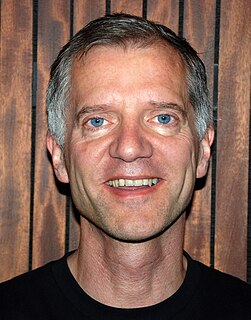
Matthias Mann is a scientist in the area of mass spectrometry and proteomics. Born in Germany he studied mathematics and physics at the University of Göttingen. He received his Ph.D. in 1988 at Yale University where he worked in the group of John Fenn, who was later awarded the Nobel Prize in Chemistry. After a postdoctoral fellowship at the University of Southern Denmark in Odense he became group leader at the European Molecular Biology Laboratory (EMBL) in Heidelberg. Later he went back to Odense as a professor of bioinformatics. Since 2005 he has been a director at the Max Planck Institute of Biochemistry in Munich. In addition, he will also become a principal investigator at the newly founded "Novo Nordisk Foundation Center for Protein Research" in Copenhagen.
Donald F. Hunt is the University Professor of Chemistry and Pathology at the University of Virginia. He is known for his research in the field of mass spectrometry, he developed electron capture negative ion mass spectrometry. He has received multiple awards for his work including the Distinguished Contribution Award from the American Society for Mass Spectrometry and the Thomson Medal from the International Mass Spectrometry Society.

Electron-transfer dissociation (ETD) is a method of fragmenting multiply-charged gaseous macromolecules in a mass spectrometer between the stages of tandem mass spectrometry (MS/MS). Similar to electron-capture dissociation, ETD induces fragmentation of large, multiply-charged cations by transferring electrons to them. ETD is used extensively with polymers and biological molecules such as proteins and peptides for sequence analysis. Transferring an electron causes peptide backbone cleavage into c- and z-ions while leaving labile post translational modifications (PTM) intact. The technique only works well for higher charge state peptide or polymer ions (z>2). However, relative to collision-induced dissociation (CID), ETD is advantageous for the fragmentation of longer peptides or even entire proteins. This makes the technique important for top-down proteomics.The method was developed by Hunt and coworkers at the University of Virginia.
The American Society for Biochemistry and Molecular Biology (ASBMB) is a learned society that was founded on December 26, 1906 at a meeting organized by John Jacob Abel. The roots of the society were in the American Physiological Society, which had been formed some 20 years earlier.
The Proteomics Standards Initiative (PSI) is a working group of Human Proteome Organization. It aims to define data standards for proteomics in order to facilitate data comparison, exchange and verification.
Alexander Alexeyevich Makarov is a Russian physicist who led the team that developed the Orbitrap, a type of mass spectrometer, and received the 2008 American Society for Mass Spectrometry Distinguished Contribution in Mass Spectrometry Award for this development. In November 2013 he was appointed to Professor by Special Appointment of High Resolution Mass Spectrometry at the Department of Chemistry and the Bijvoet Center for Biomolecular Research of Utrecht University in the Netherlands.
Joshua Coon is a professor of chemistry and biomolecular chemistry and the inaugural holder of the Thomas and Margaret Pyle Chair at the University of Wisconsin–Madison, and an affiliate of the Morgridge Institute for Research.
The Netherlands Proteomics Centre (NPC) is a Dutch research center in the field of proteomics. The research is focused on the proteome, the entire set of proteins expressed by a genome, cell, tissue or organism.
Richard Dale Smith is an award-winning chemist and a Battelle Fellow and Chief Scientist within the Biological Sciences Division, as well as the Director of Proteomics Research at the Pacific Northwest National Laboratory (PNNL). Dr. Smith is also Director of the NIH Proteomics Research Resource for Integrative Biology, Principal Investigator for the U. S. Department of Energy Office of Biological and Environmental Research Genome Sciences Program's 'Pan-omics' program at PNNL, an adjunct faculty member in the chemistry departments at Washington State University and the University of Utah, and an affiliate faculty member at the University of Idaho and the Department of Molecular Microbiology & Immunology, Oregon Health & Science University. He is the author or co-author of approximately 1000 peer-reviewed publications and has been awarded 51 US patents.
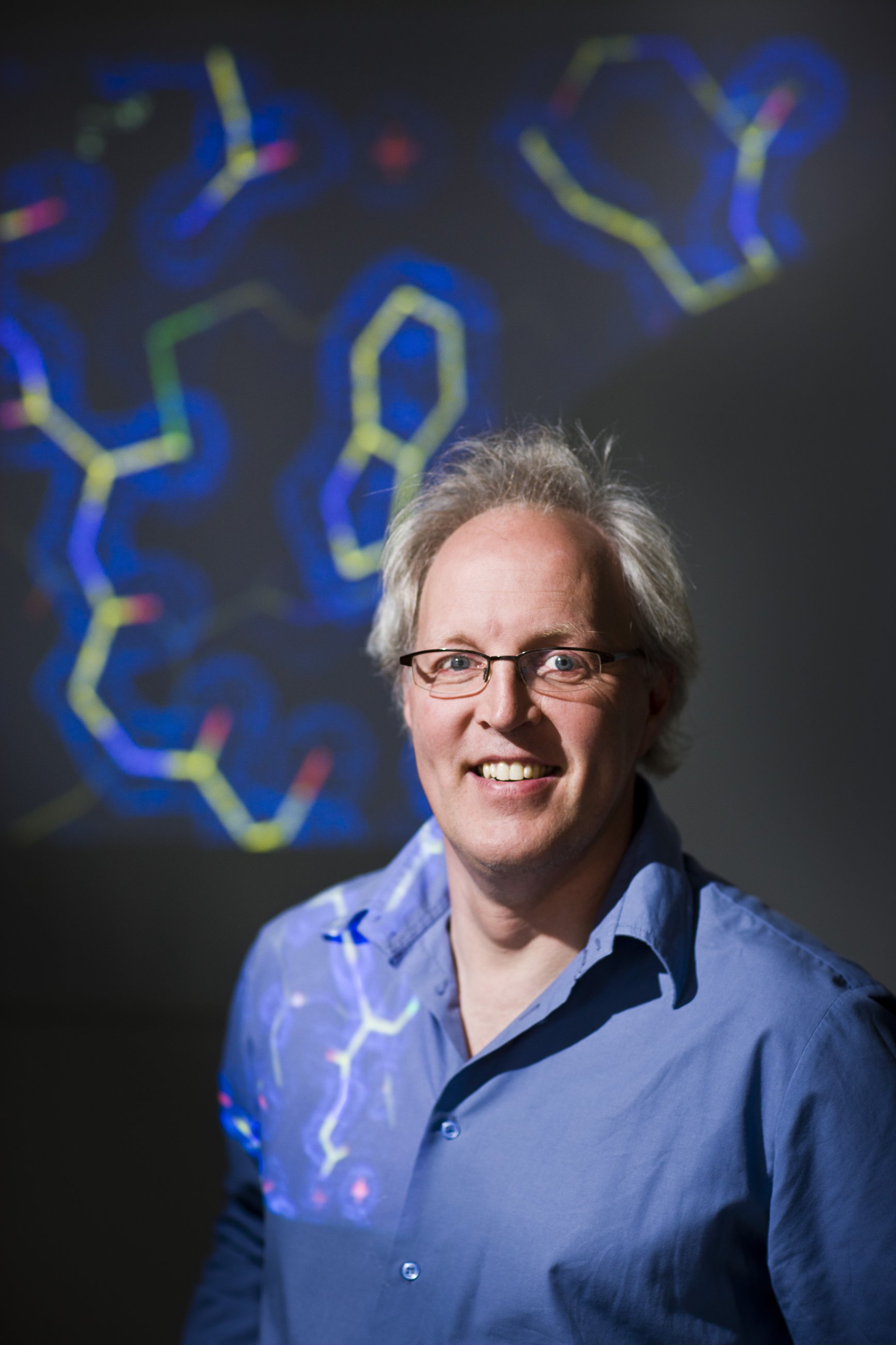
Piet Gros is a Dutch chemist and professor biomacromolecular crystallography at Utrecht University. In 2010 he received the NWO Spinoza Prize for the elucidation of the three-dimensional structure of the C3 protein, which plays a central role in the complement system and contributes to innate immunity.

The Bijvoet Center for Biomolecular Research is a research institute located at Utrecht University. The Bijvoet Center performs research on the relation between the structure and function of biomolecules, including proteins and lipids, which play a role in biological processes such as regulation, interaction and recognition. The Bijvoet Center houses advanced infrastructures for the analysis of proteins and other biomolecules using NMR, X-ray crystallography, electron microscopy and mass spectrometry. The institute is named after famous Dutch chemist Johannes Martin Bijvoet, who worked at Utrecht University.

Naomi Ellemers is a professor of social psychology and organisations and distinguished professor at Utrecht University since September 2015.

Nicolaas Martinus Maria Nibbering was a Dutch chemist and mass spectrometrist. He was a member of the Royal Academy of Arts and Sciences of the Netherlands and a recipient of the Thomson Medal and the Joannes Marcus Marci Award.
Marc Baldus is a physicist and professor of NMR spectroscopy at Utrecht University. He is especially known for his work in the field of structural biology using solid-state nuclear magnetic resonance (ssNMR) spectroscopy. He applies ssNMR methods to establish structure-function relationships in complex biomolecular systems including membrane and Amyloid proteins. In addition, he develops cellular NMR methods to study large molecular transport and insertion systems in bacteria as well as signal transduction mechanisms in eukaryotic cells.
Marileen Dogterom is a Dutch biophysicist and professor at the Kavli Institute of Nanoscience at Delft University of Technology. She published in Science, Cell, and Nature and is notable for her research of the cell cytoskeleton. For this research, she was awarded the 2018 Spinoza Prize.
Frank Sobott, Ph.D. (2000), is a Belgian chemist, who is active in the fields of mass spectrometry and biochemistry; he is a professor of the University of Leeds from February 2017.




